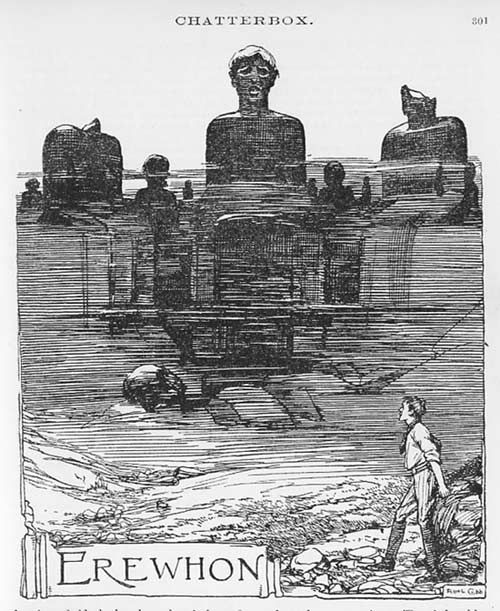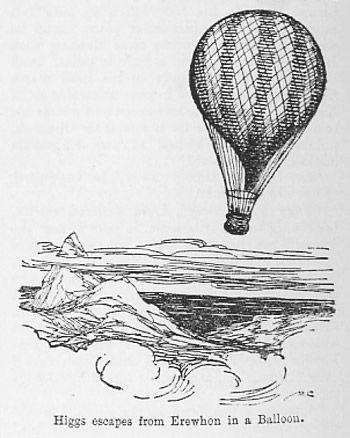Like many before him, Butler saw that some established customs and ideas of his own day were foolish. And in picturing such a place as Erewhon, he found it easier to satirise such things. Sam Butler was a young man out in New Zealand...'

'... Pushing on alone, the explorer suffered many perils, and became haunted by the sound of distant music, which prevented sleep and was quite unaccounted for. Having a glimpse of distant plains, he struggled on hoping to reach them, only to find himself enshrouded in mist. Suddenly there loomed up in front of him some gigantic figures, still and silent, but in human shape. After his first alarm was over (when he lost consciousness), he realised that he had come upon a sort of Stonehenge. Ten huge stone figures, partly covered in snow, stood in a group ; their heads were hollow, and acted as organ-pipes. The wind rushing out through their mouths made the ghostly music he had heard earlier. This was the entrance to the kingdom of Erewhon, and he heard later that at a very remote period in the people's history these statues had been put up to propitiate* the gods of disease...

...It is a modern attempt to portray an imaginary country by one who saw the folly of many things. It is an idea that has fascinated men all through the ages, and will doubtless continue to do so, and many books may yet be written dealing with such "Lands of Desire"
Free to download/read copies of 'Erewhon' by Samuel Butler http://en.wikipedia.org/wiki/Erewhon can be found here and here.
*I had to look this up! Was this a word used by kids back then? Colour me impressed by the quality of education and breadth of resulting vocabulary.
Image and text by Ruth Cobb from children's annual Chatterbox, J Erskine Clarke MA, Wells Gardner, Darton and CO, London 1927
No comments:
Post a Comment